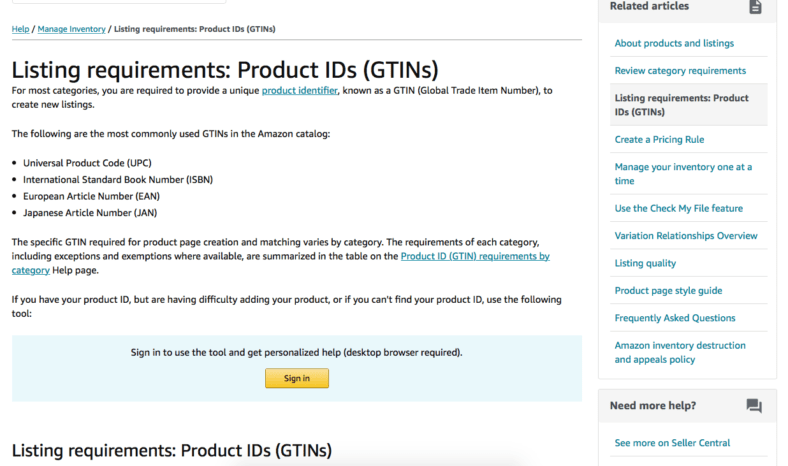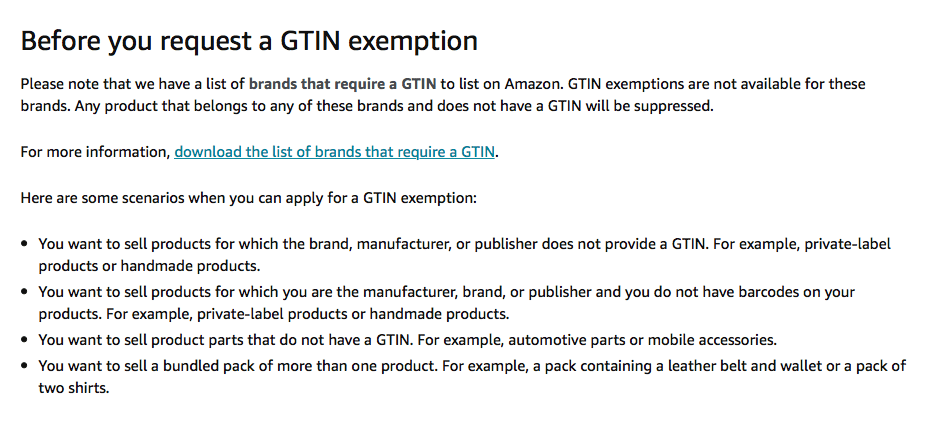To create new listings on Amazon, you should provide the Global Trade Item Number (GTINs).
The most commonly used GTINs on Amazon are Universal Product Code (UPC), International Standard Book Number (ISBN), Japanese Article Number (JAN) and European Article Number (EAN).

But let’s now learn more about the UPCs and GTINs!
UPC is a code that is widely used in the US retail network. The code consists of 12 numeric digits.
The UPCs help speed up the checkout process, identify product features (e.g. the brand name, size, color) and trace inventory.
On any product or its packaging, you may see a special printed code in which the UPC or EAN codes are encoded.
The UPC barcode contains information about the product and its manufacturer. There is a UPC barcode and a UPC code. The difference is that the UPC bar code is a picture of horizontal lines and numbers underneath them, while the UPC code is just a set of specific numbers. You may need a single 12-digit UPC code when listing an item on Amazon.
If you plan to make sales on Amazon, you’ll need to purchase UPC codes first.
The European EAN (European Product Number) is a European barcode standard designed to encode product and manufacturer identification. It is the equivalent of the UPC standard for the United States: https://ru.wikipedia.org/wiki/European_Article_Number.
EAN is also made up of 13 numbers.
After a while, these two systems merged into one service – GS1. If you are a European manufacturer for example and want to get a unique code from them, you have to go to the link and apply: http://www.gs1.org/. It’s quite problematic and not cheap, so we’re not particularly interested in it until the sales volumes are appropriate.
UPC fraud
By purchasing a UPCs, you can become a victim of scammers. We recommend you to buy UPCs for Amazon from legitimate GS1 resellers (GS1 is a not-for-profit organization that develops international standards for business communication).
Amazon managers check your numbers at the GS1 database, and all invalid products will be suppressed. It means that your ASIN creation or selling rights can be suspended or removed.
How many UPC-codes do you need?
A UPC is required for each product. E.g. if you plan to sell two T-shirts that come with three different sizes, then you need six different UPCs.
Given the pricing policy of resellers (more codes – less price), it is more profitable to stock up on them for future use.
And what about GTINs exemption?
There is a list of brands for which GTIN exemption is not available on Amazon.
However, you can apply for an exemption if:
– you do not sell goods that belong to any of the brands included in the list;
– the brand or manufacturer do not provide a unique code (e.g. private products, handmade products);
– you are the manufacturer, and you do not have the unique code;
– you sell parts that do not have the unique code (e.g. mobile accessories);
– you sell bundles (e.g. a bundle contains earrings, a T-shirt and a bag).

How do I identify products on Amazon?
- When you create a product in Amazon, the FNSCU does not yet exist, it happens in the next step:
- The FNSCU is generated when the shipment is created. At this stage, we contact Amazon and inform them that our items have been delivered to the FBA warehouse.
- Amazon then gives us the FNSCU codes in the form of pdf files, which will have: a barcode, the code itself of letters and numbers, the name of the product, its status – new.
- The number of codes released to Amazon will be equal to the number of products that will be delivered to the FBA warehouse.
Want more insights like this? Stay tuned to Amaz.Markets for more!
7



